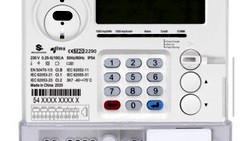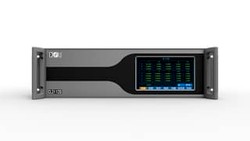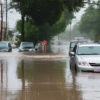Opinion piece
In the rapidly evolving world of energy, the concept of the smart grid stands out as a beacon of innovation and efficiency. However, a significant hurdle is impeding its full potential: the lack of universal standards. This absence is not just a minor inconvenience; it's a major roadblock to interoperability and efficiency, affecting everything from consumer convenience to national energy security.
A smart grid utilizes digital technology to monitor and manage the transport of electricity from all generation sources to meet the varying electricity demands of end users. Its capabilities are transformative, aiming to improve the reliability of energy distribution, optimize power management, and integrate diverse energy sources, from traditional fossil fuels to renewable energy.
However, the effectiveness of a smart grid depends significantly on its components and systems operating seamlessly together, which highlights the critical role of standardization—or the absence of it.

Currently, the smart grid landscape is a patchwork of technologies and systems developed independently by different companies, regions, and countries. Without universal standards, these systems struggle to communicate and operate efficiently with one another. This fragmentation leads to increased costs, as each segment of the grid must be customized to work with various other technologies. It also complicates the integration of new technologies, which is essential for adapting to future energy needs and innovations.
There is no consensus on the communication protocols that should be used to facilitate data exchange between smart grid devices and systems. While efforts have been made to develop standards like the IEC 61850 and IEEE P2030 frameworks, they have yet to achieve widespread adoption, leaving utilities and technology providers to navigate a labyrinth of competing protocols.
The impact of this lack of standardization is profound. For consumers, it means less reliable power, higher electricity costs, and limited access to innovative energy management tools. For utilities, it results in inefficiencies and increased operational costs, as they must invest in additional resources to ensure compatibility across diverse systems. On a broader scale, it hampers national and global efforts to move towards more sustainable and resilient energy systems.
The question then arises: why is standardization so elusive in the context of smart grids? The answer lies in the complexity of the energy sector and the rapid pace of technological advancement. Energy is a critical infrastructure, and changes to its foundational systems involve considerable risk, extensive testing, and regulatory approvals. Moreover, the competitive nature of technology development discourages companies from adhering to a common standard that may limit their ability to innovate or differentiate their products in the market.
Despite these challenges, the push for standardization is gaining momentum. Various industry groups, regulatory bodies, and international organizations are working towards developing and promoting universal smart grid standards. These efforts include defining common protocols for data communication, interoperability specifications, and security measures. However, progress has been slow, and a comprehensive set of standards that encompasses all aspects of the smart grid has yet to emerge.
Looking forward, it is clear that stakeholders across the energy ecosystem must collaborate more closely. Governments can play a pivotal role by incentivizing the adoption of standard technologies and penalizing systems that hinder interoperability. Additionally, greater involvement from consumers, who stand to benefit immensely from a more integrated and efficient grid, could accelerate the adoption of standards.
Takeaway
While the road to universal smart grid standards is fraught with challenges, the process is essential. The potential benefits of a fully interoperable smart grid are too significant to ignore. It promises not only to enhance the efficiency and reliability of energy distribution, but also to pave the way for innovative energy solutions that can lead to a more sustainable and secure energy future. As such, overcoming the standardization stalemate is not just a technical necessity, but a critical step towards realizing the full potential of our energy resources.






All comments are moderated before being published. Inappropriate or off-topic comments may not be approved.